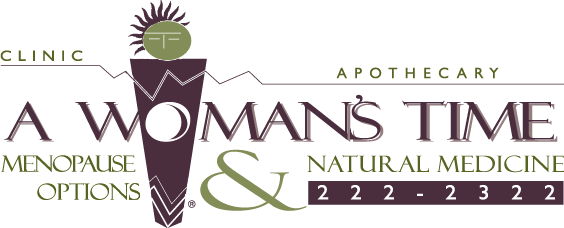Depending on your food traditions for Thanksgiving, Christmas, Hanukkah and New Years Day, many of us can relate to a post-meal comatose state that is often blamed on ingestion of turkey or other holiday meat dishes containing tryptophan. No myth busting needed, L-Tryptophan (hereinafter called tryptophan) IS the perfect medicinal holiday food. Here’s why.
Tryptophan is an essential amino acid and precursor to the brain neurotransmitters serotonin and melatonin. What this means is that ingestion of tryptophan can increase the brain chemicals responsible for making us feel happy and sleepy. In order for tryptophan to have this effect however, it must first be converted to 5-hydroxytryptophan (5-HTP), which can then be converted to serotonin and melatonin. All of these conversion steps require well functioning enzymes and supportive vitamin co-factors such as B3 (niacin), B6 (pyridoxine), Folate, Iron, Calcium, Zinc, Magnesium, and Vitamin C.
The conversion of tryptophan to 5-HTP is what we call the rate-limiting step (in other words, the deal breaker) to the production of serotonin and melatonin. When talking about the benefits of tryptophan it is therefore, impossible to avoid talking about the benefits of 5-HTP. Certain conditions have been shown to benefit from tryptophan and/or 5-HTP, but many people choose to supplement with 5-HTP instead of tryptophan to avoid any mishaps or vitamin deficiencies required for this crucial rate-limiting step.
Although animal sources such as eggs, fish, elk, lamb and poultry contain the highest concentrations; they are not the only tryptophan containing foods. Seaweeds, nuts and seeds (pumpkin, sesame, sunflower, cashews, and pistachios), dairy, soy, oats, dark leafy greens, and mushrooms are also very good sources of tryptophan. Don’t blame your post-meal bliss all on the turkey! There are additional factors at play. Other amino acids abundant in the typical holiday feast can compete with tryptophan for uptake into the brain. Food preparation techniques will also alter the amount of usable tryptophan. Increasing temperature and cooking times as well as cooking with reducing sugars such as glucose, fructose, or lactose can lead to significant tryptophan losses. It is difficult to tease apart all of the elements at play in the post Thanksgiving meal mood change and increased sleepiness, however scientists are studying these individual amino acids in hopes of learning more about their effects.
Here are some of the conditions that may be prevented and/or treated with tryptophan and 5-HTP supplementation.
Insomnia – Some research shows that tryptophan may help with sleep latency (the ability to fall asleep) because of its effect on melatonin. Also, people who suffer from insomnia may experience an improved mood due its effect on serotonin.
Premenstrual dysphoric disorder (PMDD) – Taking as little as 6mg daily has been shown to improve mood, irritability, and tension in people with PMDD.
Smoking cessation – Studies show that tryptophan supplementation can help support those who are actively trying to quit smoking. How cool is that? We know how much people struggle with this due to the addictive quality of nicotine and how important smoking cessation is for one’s health especially in regards to cancer prevention.
Seasonal affective disorder (SAD) – Many people experience seasonal blues during the dark fall and winter days. Some research shows tryptophan to be helpful for those affected by SAD.
Depression – Both tryptophan and 5-HTP supplementation can have a positive impact on those with mild to moderate depression. If used safely, and under the guidance of a physician, it can also improve the effectiveness of some anti-depressant medications or be used in the place of. If you want to know more about how this might apply to you, bring this up next doctor’s appointment.
Attention Deficit Hyperactivity Disorder (ADHD) – How nice would it be to use food and/or nutrient supplementation to treat a condition as prevalent as ADHD especially when it affects so many kids and adults! Well, unfortunately the jury is still out on the effectiveness of supplementation however; tryptophan deficiencies are shown to be lower in children with ADHD. This may be more a function of gastrointestinal health and the body’s inability to absorb the essential amino acid then supplementation not being effective.
Opioid Tolerance – One small study has shown that administration of a small amount of daily tryptophan reversed opioid tolerance and reduced pain in individuals with chronic pain and opioid use.
Sleep Apnea – Another small preliminary study showed promising effects of tryptophan usage for patients with obstructive sleep apnea (not to be confused with central sleep apnea) in reducing the number of episodes experienced per night.
Make sure to consult your naturopathic physician before undergoing supplementation with any natural products to avoid drug-drug or drug-botanical interactions and also to make sure these products are right for you, given in the correct dosages, and for the correct length of time. Don’t forget the vitamin cofactors and our bodies’ ability to absorb these nutrients. If you have underlying gut dysfunction, you will want to go further upstream to address the cause of why you may be experiencing a deficiency in essential amino acids and vitamins.
In the meantime, enjoy your holiday meal this year rich in multiple nutrient dense foods containing the happy, sleep-inducing amino acid, tryptophan.








